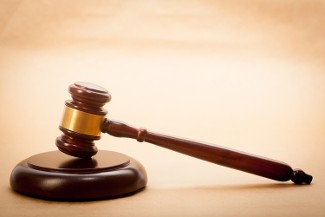|
Juvenile Dependency Court & CPS Defense
Juvenile dependency court judges have the power to issue court orders designed to protect, as well as provide placement and care for, a minor child, when the child’s parent, or parents, are abusive and/or neglectful to their minor child, and/or when the parent, or parents, are incapable of caring for their child.
Juvenile dependency legal definitions: In juvenile dependency court the term minor child means a person under the age of eighteen. The term child abuse includes child molestation, unreasonable corporal punishment, and/or severe psychological and/or verbal abuse. The term child neglect includes failure to protect and/or provide for a child. The term incapable means that the parent is either mentally and/or physically incapable of caring for a child, or voluntarily or involuntarily absent from the child’s life (i.e. incarcerated, deceased, absent, drug addicted, etc.).
Juvenile dependency cases begin when Child Protection Services (CPS) file a petition for removal of the child from the custody or his or her parent or parents. The petition will allege that the removal is necessary because the child’s parent or parents is abusive, neglectful, or incapable of caring for the child and that there is no immediately available safe alternative, such as a non-abusive parent, stepparent, guardian, or close family member.
Juvenile Dependency Court
Detention Hearings: The first hearing in juvenile dependency court is called the detention hearing. If CPS removes a child from his or her parent’s or parents’ physical custody then CPS must file the petition for removal in the juvenile dependency court within two days of removing the child. The detention hearing will be heard the same business day as the filing of the petition for removal. If the child was not removed from his or her parent’s or parents’ physical custody the detention hearing must be held within fifteen days of the filing of the petition for removal.
At the detention hearing the judge will decide whether or not there is sufficient evidence of child abuse and/or child neglect on the face of the petition to justify removal of the child. If the juvenile dependency court judge finds sufficient evidence to justify removal of the child he or she will set a jurisdiction hearing and issue temporary child custody and/or child visitation orders, including child protection and/or child placement orders.
Note: If the juvenile dependency court judge finds sufficient evidence of child abuse and/or child neglect at the detention hearing the court may nevertheless grant physical custody to the offending parent or parents, depending on the nature of the allegations and the safety requirements of the child. Other options the judge may choose include granting temporary physical custody of the child to a safe close family member of the child, a foster family, or the county social worker.
Jurisdiction Hearing: At the jurisdiction hearing the juvenile dependency court judge will conduct a more in depth review of the allegations, including a review of the parent's or parents' responsive evidence, if any.
At the jurisdiction hearing a parent has a right to remain silent, a right to testify, a right to present favorable evidence, and a right to cross-examine adverse witnesses, including CPS workers. If the judge believes the allegations are true at the conclusion of the jurisdiction hearing he or she will have the power to make further orders at a disposition hearing.
Disposition Hearing: At the disposition hearing the judge may issue any of the following orders: grant child custody to the parent or parents, grant child custody to a third person (foster family, close relative of the child, etc.), grant child visitation orders to the parent or parents, terminate the parent’s or parents' parental rights, issue restraining orders against a parent or parents, and/or allow reunification services, depending on the circumstances.
Reunification services: Reunification services attempt to reunite, physically and emotionally, a child or children, with his or her parent or parents, in a manner designed to address the particular safety needs of the child or children as well as the rehabilitation needs of the parent or parents. Rreunification progress is closely monitored by the county's social worker who will prepare a progress report for the judge to consider at the next status review hearing. Status review hearings are held in juvenile dependency court at six, twelve, and eighteen months, depending on the child’s age, the nature of the allegations, the parent’s or parents' progress, and other factors.
Six Month Review: At the six month status review hearing the court will review the progress of the reunification services. The judge may change its orders depending on the success, or lack thereof, of the reunification progress. If the progress report is good the judge may reunite the child with his or her parent or parents. If the reunification progress report is poor the judge may order further reunification services with a further status review hearing at twelve months, order more restrictive visitation, terminate the reunification services, or terminate the parent’s or parents' parental rights completely.
Twelve Month Review: The twelve month status review hearing is held to ascertain the progress of reunification service since the six month status review hearing. If the reunification progress report is good the may allow the child or children to return home under close supervision. If the reunification progress report is poor the judge may allow reunification services to continue with another status review hearing at eighteen months or the judge may terminate the reunification services, depending on the circumstances.
Eighteen Month Review: The eighteen month status review hearing is held to ascertain the progress of reunification services since the twelve month status review hearing. If reunification is not successful by the eighteenth month status review hearing the court will terminate the parent’s or parents’ parental rights and seek a permanent plan for the child.
A permanent plan includes adoption, guardianship, or long-term foster care, depending on the child’s needs and circumstances.
CPS Defense
Warning: The alleged facts included in a CPS petition for removal based on child abuse and/or child neglect may constitute a criminal offense. For example, willful child endangerment, failure to protect a child, failure to provide for a child, unreasonable corporal punishment, contributing to the delinquency of a minor, and lewd acts, are all common allegations in CPS petitions that may also be charged against the parent or parents in criminal court. If you are served with a petition for removal contact our family law and criminal defense attorneys without delay.
CPS Defenses Include: witness bias or prejudice issues, witness memory or recall issues, witness exaggeration or lack of trustworthiness issues (criminal history, reputation of dishonesty, prior false allegations, motive to fabricate, etc.), statement contamination issues (statement adoption, statement commingling, use of leading, compound, and/or argumentative questions, witness suggestibility issues, coerced confession, etc.), evidence production problems (lack of foundation and/or relevance issues, privilege restrictions, hearsay issues, etc.), illegal evidence issues (illegal recordings, search and seizure violations, involuntary confessions, etc.), negotiated settlement before judgment, and more.
Note: When CPS determines that an allegation of child abuse and/or child neglect is substantiated (true) or inconclusive (undetermined) the offending person's name may be listed on the Child Abuse Central Index (CACI). This is true for anyone, even if the person is not a parent to the abused or neglected child and regardless of whether or not the juvenile dependency court is involved . For more information see CACI Name Removal.
For more information on juvenile dependency law, CPS defenses, or how to remove your name from the Child Abuse Central Index (CACI), contact our juvenile dependency lawyers for a free consultation. Call today!
(909) 725-8199
|
Juvenile Dependency / CPS Lawyers
909-725-8199
Free Consultations
Mon-Sat 7:00 a.m. - 7:00 p.m.
Se Habla Español

All Family Law Matters, Including

Family Law Lawyers Serving
San Bernardino County
San Bernardino, Rialto, Colton, Yucaipa, Montclair, Victorville, Rancho Cucamonga, Ontario, Chino, Fontana, Upland, Hesperia
Riverside County
Eastvale, Moreno Valley, Norco, Corona, Beaumont, Riverside, Jurupa Valley, Hemet
Los Angeles County
Pomona, West Covina, Los Angeles

Juvenile Dependency Court Lawyers
909-725-8199
Free Consultations
Mon-Sat 7:00 a.m. - 7:00 p.m.
Se Habla Español

Juvenile Dependency Court Information
San Bernardino County
860 East Gilbert Street
San Bernardino, CA 92415-0942
Phone Number (909) 387-7005
Riverside County
9991 County Farm Road
Riverside, CA 92503
Phone Number (951) 777-3147
Los Angeles County
Edmund D. Edelman Children's Court
201 Centre Plaza Drive
Monterey Park, CA 91754
Phone Number (323) 307-8000
Alfred J. McCourtney Juvenile Justice Center
1040 W. Avenue J
Lancaster, CA 93534
Phone Number (661) 945-6447
|

